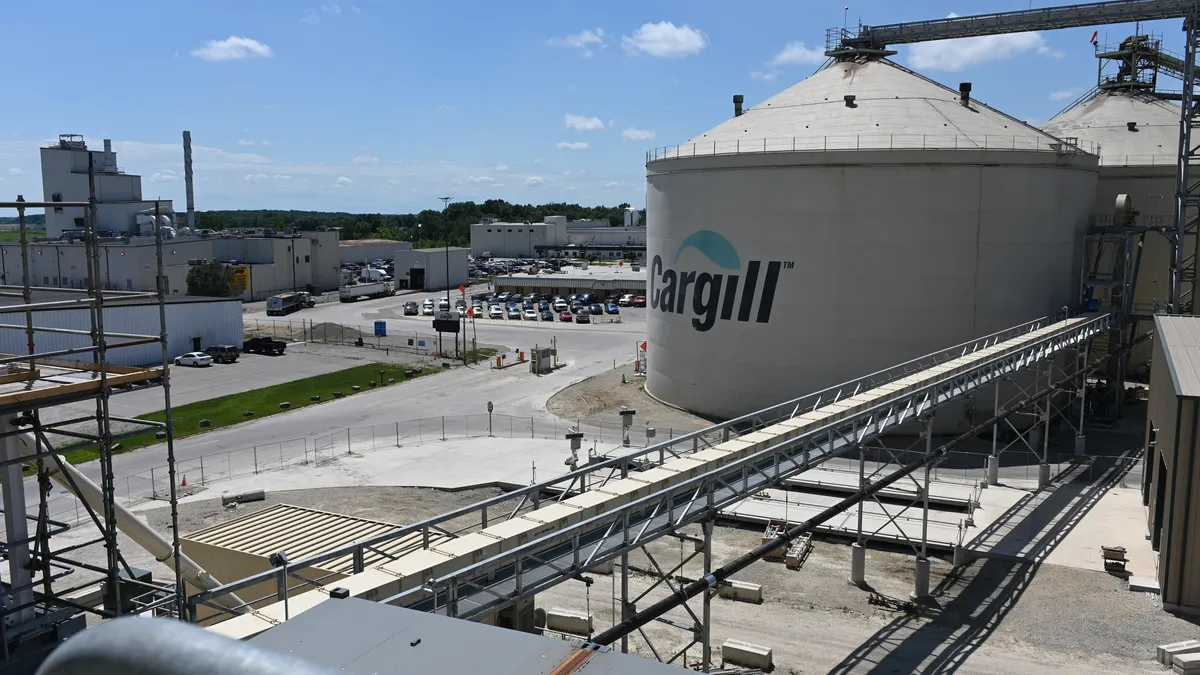Dive Brief:
- Cargill reported a rare decline in revenue, as the world's largest grain trader faces headwinds from low commodity prices and a surplus of crops.
- The privately-held company reported $160 billion in annual revenue in 2024, close to a 10% drop from the previous year.
- Cargill CEO Brian Sikes wrote in a letter to stakeholders on Wednesday that "the marketplace our people navigated this year was extremely challenging."
Dive Insight:
Cargill's revenue slump broke a two-year streak of record earnings, and comes as agricultural commodity prices plummet from sluggish global demand and ample U.S. supply.
In 2024, U.S. commodity prices hit their lowest in at least three years as farmers struggled to offload record corn and soybean supplies. Farms and agricultural merchants could see the problem compounded by a bumper crop on the horizon and record amounts of grain sitting in storage.
"Right now the losses look punishing due to the combination of rising expenses in recent years and the downdraft in corn and soybean prices," Scott Irwin, an agricultural economist with the University of Illinois, wrote on X, formerly known as Twitter.
Amid that backdrop, Cargill will reportedly undergo structural changes, according to Reuters, and will streamline operations from five business units to three beginning Sept. 1. A memo sent to staff said less than one-third of Cargill's businesses met their earnings goals in fiscal year 2024, Reuters reported.
Cargill is also expanding capacity to store and process commodities to handle the growing surplus of crops, recently acquiring soy storage and crush facilities in South America, according to its annual report. Cargill is also advancing efforts around its regenerative agriculture program and platform, which helps other food giants cut farm emissions.
"As we look to the future, our teams are sharply focused on achieving greater efficiency and profitability across our businesses while driving growth and greater value for our customers and communities around the world," Sikes wrote in his letter to stakeholders.











